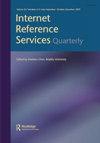打击虚假信息共享:历史、框架和扫盲策略
Q3 Social Sciences
引用次数: 8
摘要
社交媒体帮助加强了互联网上共享信息的速度和数量。每天,来自不同观点和各种媒介的大量信息被释放到公众面前。不幸的是,这些信息的真实性范围很广——从完全正确,到有些正确但具有误导性,再到完全错误。虽然我们可能会部分地指责敌对的外国或国内行为者将虚假信息植入公众意识,但信息使用者需要了解他们自己在分享信息时所扮演的角色,而这些角色往往是在无意中扮演的。在这项研究中,我们试图推进我们对信息共享现象的理解,特别是当涉及虚假信息时,并证明信息素养是抵御虚假信息的最佳防线。在对图书馆员如何处理宣传和虚假信息进行历史回顾之后,我们提出了一个概念性框架,以理解人们为什么分享信息,特别是虚假信息,并使用社交媒体和其他数字通信渠道的例子。我们还讨论了分享虚假信息的后果。最后,我们提出扫盲策略,使信息使用者具备有效评估、处理和响应共享信息的知识和技能。本文章由计算机程序翻译,如有差异,请以英文原文为准。
Combating the Sharing of False Information: History, Framework, and Literacy Strategies
Abstract Social media has helped intensify the velocity and volume of information shared on the Internet. A flood of information from a multitude of viewpoints and in a wide array of mediums is unleashed on the public daily. Unfortunately, the information falls on a wide spectrum of veracity—from completely true, to somewhat true but misleading, to utterly false. While we may partially blame hostile foreign or domestic actors for seeding false information into the public consciousness, information users need to understand their own roles, often played unwittingly, in sharing that information. In this study we attempted to advance our understanding of the phenomena of information sharing, especially when false information is involved, and demonstrate that information literacy is the best line of defense against false information. After a historical overview of how librarians dealt with propaganda and false information, we present a conceptual framework for understanding why people share information, especially false information, using examples from social media and other digital communication channels. We also discuss the consequences of sharing false information. We conclude with literacy strategies for equipping information users with the knowledge and skills to assess, process, and respond to shared information effectively.
求助全文
通过发布文献求助,成功后即可免费获取论文全文。
去求助
来源期刊

Internet Reference Services Quarterly
Social Sciences-Library and Information Sciences
CiteScore
2.40
自引率
0.00%
发文量
13
期刊介绍:
Internet Reference Services Quarterly tackles the tough job of keeping librarians up to date with the latest developments in Internet referencing and librarianship. This peer-reviewed quarterly journal is designed to function as a comprehensive information source librarians can turn to and count on for keeping up-to-date on emerging technological innovations, while emphasizing theoretical, research, and practical applications of Internet-related information services, sources, and resources. Librarians from any size or type of library in any discipline get the knowledge needed on how to best improve service through one of the most powerful reference tools available on the Internet.
 求助内容:
求助内容: 应助结果提醒方式:
应助结果提醒方式:


